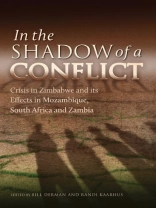Zimbabwe has cast a powerful regional and international shadow since it became independent in 1980 and more recently, through the crises of the first decade of the twenty-first century. The 2000s were a decade of combined political, economic and social crises in Zimbabwe following what had been a relatively successful twenty years of independence since 1980. The scale, depth and severity of the crises evolving since 2000 have been as dramatic as they have been unexpected. While there has been substantial coverage of the internal consequences of Zimbabwe’s crises less attention has been paid to its regional and cross-border consequences. In explaining the ongoing processes stemming from the crises, this book looks at three neighboring countries – Mozambique, South Africa and Zambia – to depict how, over time, they have experienced and interpreted events in Zimbabwe, how they have dealt with Zimbabweans entering their territories, and how they have or have not formulated policies and developed practices to cope with the arrival of new and mainly undocumented Zimbabwean immigrants.
O autorze
Randi Kaarhus is currently Head of Research at the Department of International Environment and Development Studies (Noragric) at the Norwegian University of Life Sciences. Holding a Ph D in Social Anthropology from the University of Oslo, she has carried out research both in South America and south-eastern Africa, focusing on Mozambique, Malawi and Tanzania. Recent publications analyse local conceptions of rights and gender, food and livelihoods, and address conflicts over land and natural resources.












